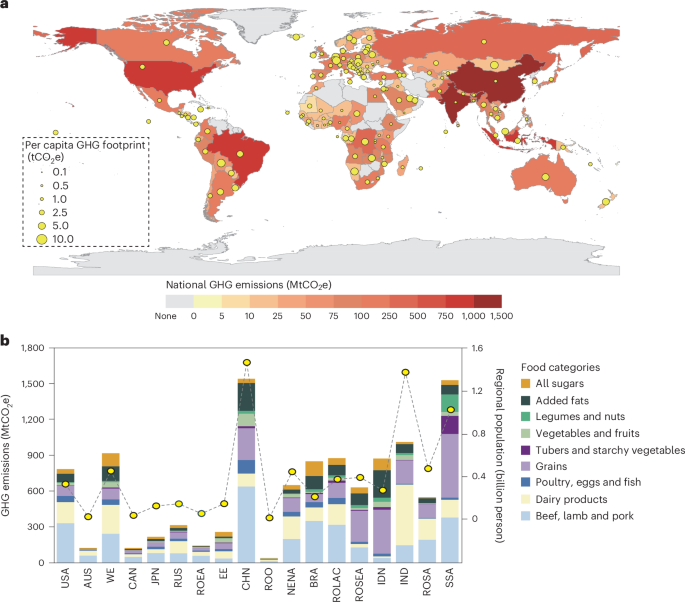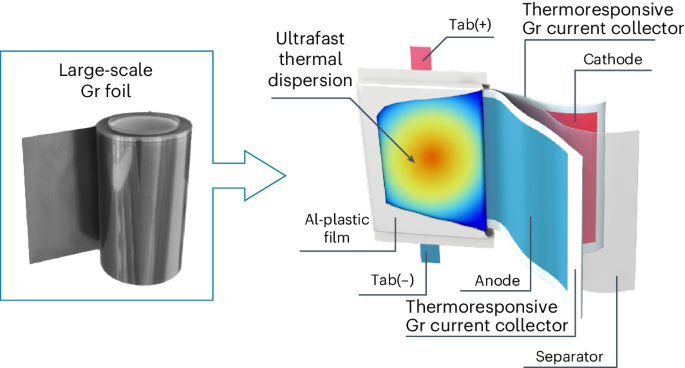2024-08-27 カーディフ大学
<関連情報>
- https://www.cardiff.ac.uk/news/view/2835415-changing-diet-choices-may-help-cut-greenhouse-gases
- https://www.nature.com/articles/s41558-024-02084-1
食生活のシフトを通じて世界の食料システムが気候変動に与える影響を軽減する Reducing climate change impacts from the global food system through diet shifts
Yanxian Li,Pan He,Yuli Shan,Yu Li,Ye Hang,Shuai Shao,Franco Ruzzenenti & Klaus Hubacek
Nature Climate Change Published:13 August 2024
DOI:https://doi.org/10.1038/s41558-024-02084-1

Abstract
How much and what we eat and where it is produced can create huge differences in GHG emissions. On the basis of detailed household-expenditure data, we evaluate the unequal distribution of dietary emissions from 140 food products in 139 countries or areas and further model changes in emissions of global diet shifts. Within countries, consumer groups with higher expenditures generally cause more dietary emissions due to higher red meat and dairy intake. Such inequality is more pronounced in low-income countries. The present global annual dietary emissions would fall by 17% with the worldwide adoption of the EAT-Lancet planetary health diet, primarily attributed to shifts from red meat to legumes and nuts as principal protein sources. More than half (56.9%) of the global population, which is presently overconsuming, would save 32.4% of global emissions through diet shifts, offsetting the 15.4% increase in global emissions from presently underconsuming populations moving towards healthier diets.



